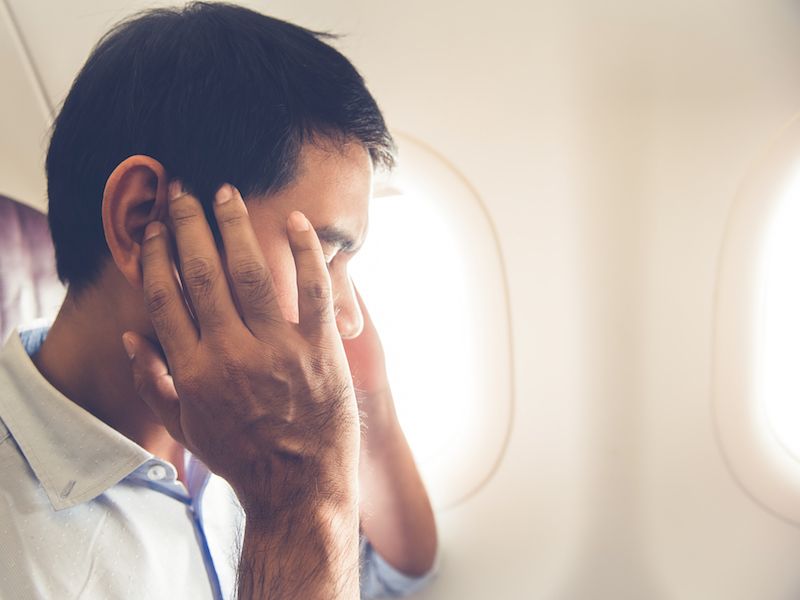
You have good days, and you have bad days, that’s par for the course for those who suffer from tinnitus but why? More than 45 million Americans endure ringing in their ears from a condition called tinnitus, according to the American Tinnitus Association, and 90 percent of them also have some level of hearing loss.
None of that explains why the ringing is invasive some days and nearly non-existent on others. It’s not completely clear why this occurs, but some typical triggers may explain it.
What Is Tinnitus?
Tinnitus describes a condition where the patient hears phantom noises such as:
- Roaring
- Clicking
- Ringing
- Buzzing
- Hissing
You hear it, the person beside you doesn’t, which is part of what makes tinnitus so disturbing. Also, the pitch and volume can vary. It might be gone one day and the next it’s a roar.
Exactly What is The Cause of Tinnitus?
Changes in a person’s hearing are the most prevalent cause. The cause of these changes could be:
- Ear bone changes
- Earwax build up
- Noise trauma
- Aging
Some other potential causes include:
- Head trauma
- Atherosclerosis
- Acoustic neuroma
- High blood pressure
- TMJ issues
- Tumor in the head or neck
- Meniere’s disease
- A problem with the carotid artery or jugular vein
Sometimes there is no obvious explanation for tinnitus.
Consult your doctor to have your ears checked if you suddenly observe the symptoms of tinnitus. The problem might be something treatable or it might be a symptom of a life-threatening condition including high blood pressure or heart disease. A side effect of a new medication could also be the cause.
For some reason the ringing gets worse on some days.
It’s a bit of a medical mystery as to why certain days are worse than others for those who have tinnitus. And there could be more than one reason depending on the person. There are known triggers that might explain it, though.
Loud Events
Your tinnitus can be aggravated by loud events such as concerts, club music, and fireworks. The number one option is to use ear protection if you expect to be exposed to a lot of noise. You can enjoy the music at a concert, for example, without hurting your ears by wearing earplugs.
Another thing you can do is to put some distance between you and the source of the loud sound. When you go to a fireworks show don’t sit up front and avoid the front row at a live performance. Combined with hearing protection, this could reduce the impact.
Loud Noises at Home
Loud noises around your home can also be a problem. For example, mowing the lawn is enough to trigger tinnitus. Consider other things you do at home that may be a problem:
- Woodworking – The tools you use are enough to cause a problem
- Wearing headphones – The function of headphones is to raise the volume of your audio which could be aggravating your tinnitus so it might be time to lose those earbuds.
- Laundry – If you fold clothes while the washer is running, for example.
If there are things you can’t or don’t want to avoid like woodworking, wear hearing protection.
Noises at Work
Loud noises at work have the same impact as a concert or the lawnmower. If you work around machinery or in construction it’s especially important to use ear protection. Your employer will probably supply hearing protection if you make them aware of your worries. Spend your personal time letting your ears rest, too.
Changes in Air Pressure
Most people have experienced ear popping when they fly. An increase in tinnitus can happen from the noise of the plane engine and the shift in pressure. Consider hearing protection if you are traveling and bring some gum to neutralize the air pressure.
You can experience changes in pressure without leaving your home, too. If you have sinus problems, for example, consider taking medication to help relieve them.
Medication
Speaking of medication, that could also be the problem. Certain medications are ototoxic, meaning they have an impact on the ears. Some common drugs on the list include:
- Over-the-counter pain relievers
- Antibiotics
- Diuretics
Talk to your doctor if you experience an intensifying of tinnitus after you begin taking a new prescription. It might be possible to switch to something else.
For some people tinnitus is not just aggravating it’s disabling. The first step is to find out what’s causing it and then look at ways to control it from day to day.

